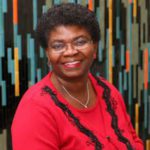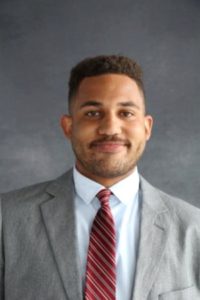“True peace is not merely the absence of tension; it is the presence of justice”
– Dr. Martin Luther King Jr.
On the third Monday of January, the world gathers to commemorate the legacy of civil rights activist Dr. Martin Luther King Jr. These gatherings are often marked by reflection, musical celebration, and demonstrable action to carry forward the tireless endeavours of Dr. King. Restrictions imposed by the pandemic meant many of these gatherings were virtual, including Dalhousie and King’s annual Black Student Advising Centre (BSAC) Martin Luther King Jr. Day event. Pandemic notwithstanding, the event was unifying and moving thanks to the organizing efforts of BSAC Advisor Oluronke Taiwo.

BSAC Advisor Oluronke Taiwo
The event’s apt title: “The Justice System: A Weapon or a Shield, How Relevant is That Today?” posed a question of paramount importance when reflecting on the work of Dr. King. The event opened with third-year Dalhousie student and soul singer Eriana Willis-Smith who performed an original piece called “Better Days.” Its uplifting lyrics coupled with her powerful voice set a hopeful tone that carried throughout the evening. The song’s message was a reminder to keep moving forward, and beautifully aligned with Dr. King’s message that we must “never lose infinite hope.”
Four eloquent and compelling panellists weighed in on the weapon-shield dichotomy, sharing their poignant insights on moving forward toward true justice.
Watch the panel
Schulich School of Law professor, Dr. Olabisi Akinkugbe, brought an academic approach to the justice system question and asserted that if the institutions that wield the law are not sympathetic, a just society cannot be achieved. Panellist and Schulich School of Law student Jahvon Delaney built on this point and explained that the justice system is more often and largely used as weapon as opposed to a shield (which echoed the sentiments of all of the panellists).

Panellist Jahvon Delaney
Panellist and Director of Operations for the Nova Scotia Decade for People of African Descent (NSDPAD), Vanessa Fells, posited that to overcome the weaponization of the justice system, protective shields must be created. These shields take form in the collaboration of various organizations that support the Black community such as the NSDPAD Coalition, which works to provide education and outreach resources to Nova Scotians of African Descent.
When the Q & A period commenced, the chat box flourished. Questions arose as to how true allyship can be attained, and how the government can and should start building trust with African Nova Scotian communities. Panellist and founder of Game Changers 902, DeRico Symonds, prudently stated that allyship begins with asking not “what can you do” but “what do you do”—how can you affect positive change right where you are. Responding to the latter question, all panellists agreed that to build trust with African Nova Scotian Communities the government must put aside its own aims when inviting Black people to the table, they must listen, and most importantly, act. Fells poignantly summarized that “if you’re coming to the table with a predetermined agenda, you are not coming to help the community.”
Advocate, lawyer, MLA, and event moderator Angela Simmonds pointedly closed the event by emphasizing that difference should be celebrated, not separative.
BSAC’s event platform and speakers created a captivating, imperative conversation that served as a vital reminder that to truly honour Dr. King and his legacy we must take action not only on the third Monday of January, but every day.
Photo: New York World-Telegram and the Sun staff photographer: DeMarsico, Dick, photographer., Public domain, via Wikimedia Commons

